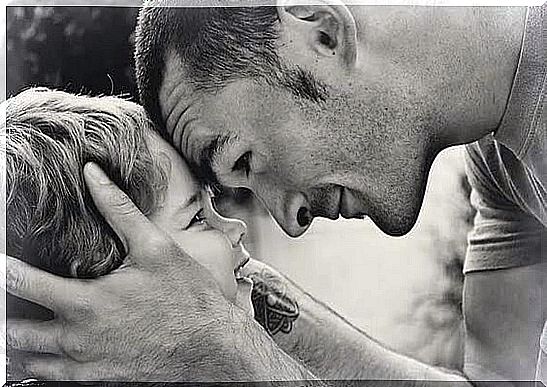Dad, Mom: I Want To Learn To Be Independent

Being independent for many people is a really expensive challenge. A challenge that requires great effort and determination. Being a psychologically independent person is an attitude towards life full of courage, love and confidence towards the potential that one possesses.
But, despite all the benefits of having this attitude towards life, for some people it is not so easy. It is not easy because they have not been taught to do so. Some people did not learn this attitude when they were little and it is now that life inevitably pushes them to it.
Learning to be independent does not mean seeking recklessness at all costs
When we encourage a child to do tasks on their own, we are sending them a clear message. We are transmitting to him that he has possibilities to function in the world and that the rest of us believe in those possibilities. Thus, he will stop looking at others and will begin to explore the resources he has: “if others think that there is the key … then I will have to look.”
However, we have to clarify concepts. When we talk about independence we are not talking about promoting recklessness. We talk about reasonable and necessary challenges for good personal development. A child can learn to be psychologically independent to the extent that his parents trust that he can try to solve certain problems on his own.

If we don’t let him make mistakes, we don’t let him learn either
We can put an example to understand it better. A child is learning to divide by two figures. They have already taught him in school and now it is time to do homework at home to practice these types of divisions. At that moment, a parent may appear and notice this difficulty.
Seeing your child grappling with this difficulty can be tempting for parents to do it for them. In fact, there are extraordinarily skilled children at getting an adult to perform tasks for them, since they know how to win them over. However, falling into this temptation is not the best. As parents, we can help calm the anxiety caused by the challenge or even start the division so that the child focuses attention, but not end up doing their homework for them.
On the other hand, we have to give the child space to act. If we intervene quickly, and do not let him face the division, we will be sending the message that we do not trust his ability. We are telling him that the challenge is very difficult for him, so he will give up earlier.
For children, our trust is a great gift
In the example above, the parent can also act differently. You can be with your child allowing him to work out this division on his own. The child will make mistakes and try to do it as best he can. We can help you through this trial and error process. Teaching him to “see”, but not to answer for them.

We have to leave him the possibility of making mistakes, because in this way he will understand how a division of two figures is carried out correctly. In addition, we will be giving you space to familiarize yourself with the process, meet all the doubts and get out of them by yourself. In this way, with your footprints you will mark the path and they will never stop you again.
You will understand what mistakes you are making and will be able to remedy them. This learning will make you feel competent and capable. This new idea of yourself will make you face the “little problems” of your short life with greater confidence and security in your ability.
With this way of helping him we are not leaving our son alone in the face of adversity. We are helping you develop your intellectual abilities. We help him to try out, to generate solutions, to prove himself, to try … All this will generate new connections in the child’s brain. For this reason, the role that the family plays in achieving this goal is vital.
Overprotection removes opportunities for growth
Overprotection supposes a kind of “immediate assistance” in which the adult intervenes quickly in the face of every slightest difficulty of his child. The child will learn that there will always be someone to solve every problem that comes his way for him. In this way, he will stop trying to do things for himself because, totally, there will already be someone to do it for him. You just have to sit back, put on a smile, and wait.
In some way, this “quick assistance” is sent as a message of love, of affection towards the child: “I do everything for you, because I love you”, but behind it there is a “I do everything for you because I don’t believe May you alone ”, and this inevitably conveys to the child the idea that he is not capable of doing things by himself.
Consequences of overprotecting children
This will stop trying, stop trying, stop trying, and miss opportunities for growth. More and more they will entrust their lives to their parents. But all this is not free and will have a series of consequences:
- He will often ask his parents for help with his homework.
- He will be discouraged at the slightest difficulty.
- You will not tolerate frustration well.
- You will become insecure and dependent on others.
- You will have a poor self-concept and self-esteem.
For this reason it is important to help children to discover for themselves, to make mistakes, to rehearse, to become frustrated … In this way they will learn that they have resources and capacities to try to solve, if not all, many of the problems. problems that will be generated in your life.

We conclude this reflection with a Chinese proverb that you have probably heard many times: “Give me a fish and I will have dinner tonight, teach me to fish and I will always have dinner.” So from here we encourage all parents to teach us to fish, not to give us the fish at the first exchange, to let us try and try for ourselves. It is sure to be a very useful and necessary legacy for our future!









